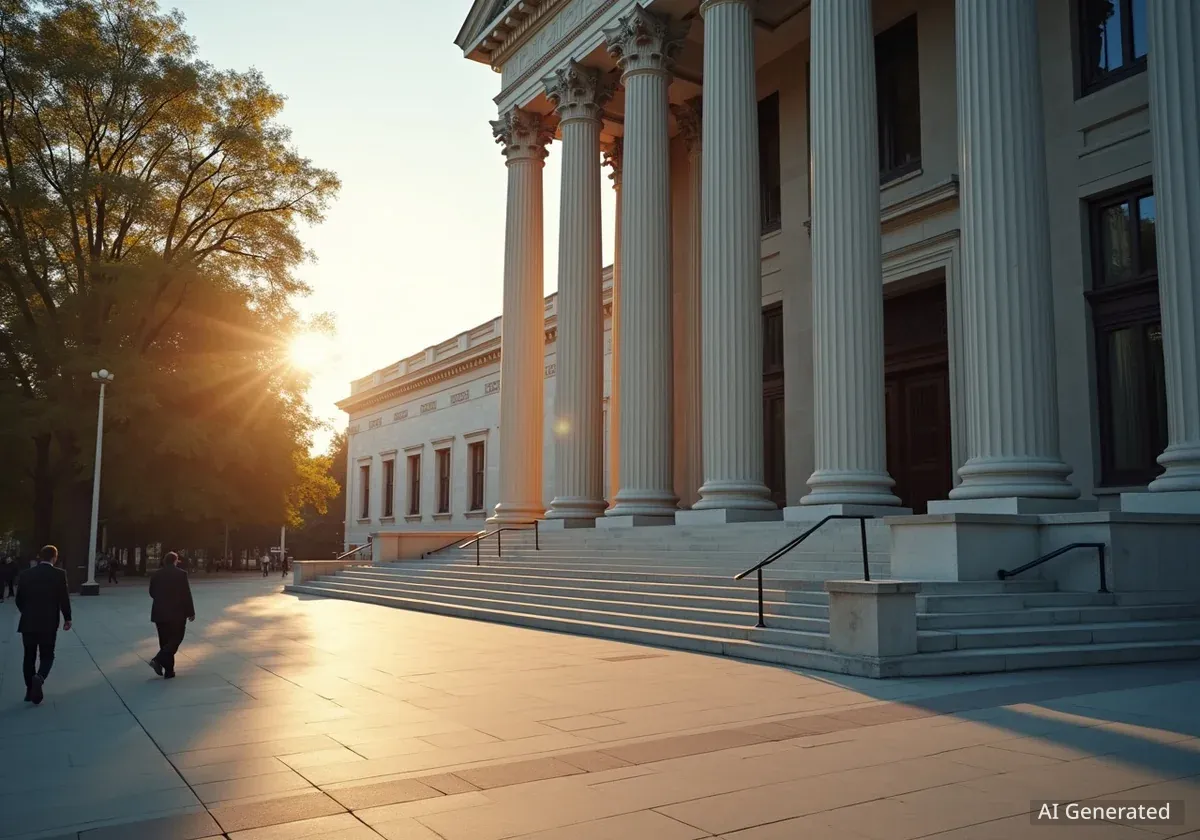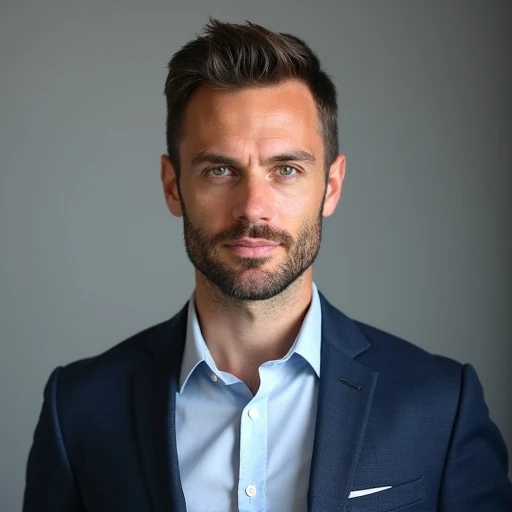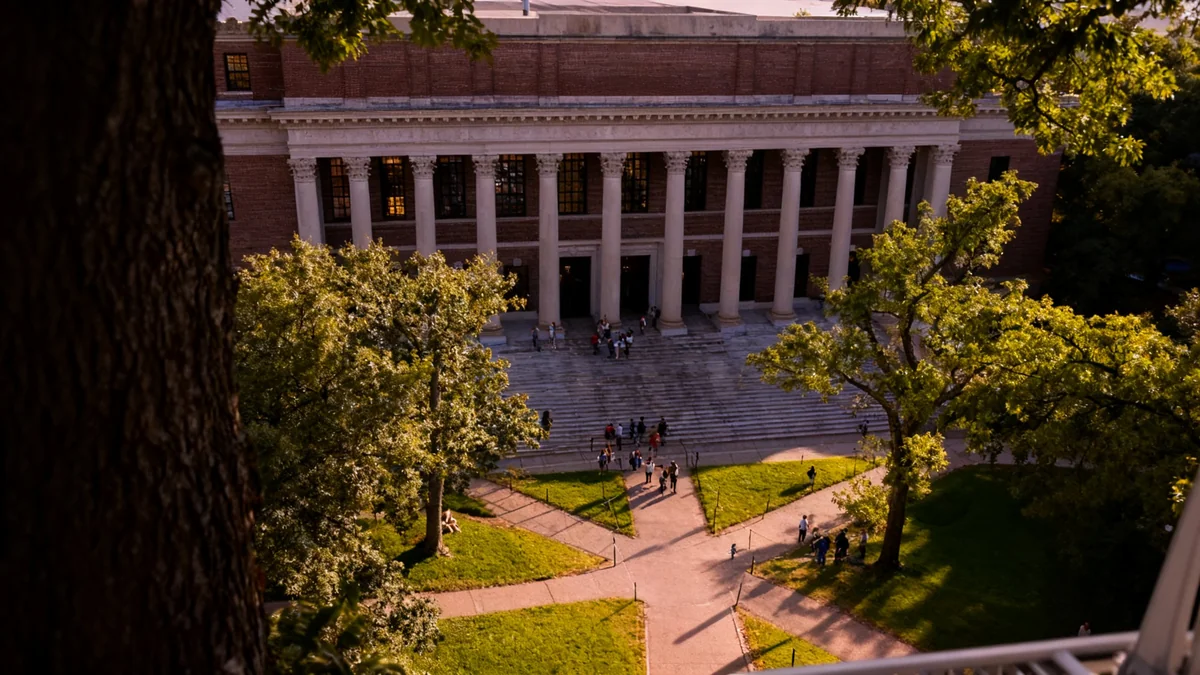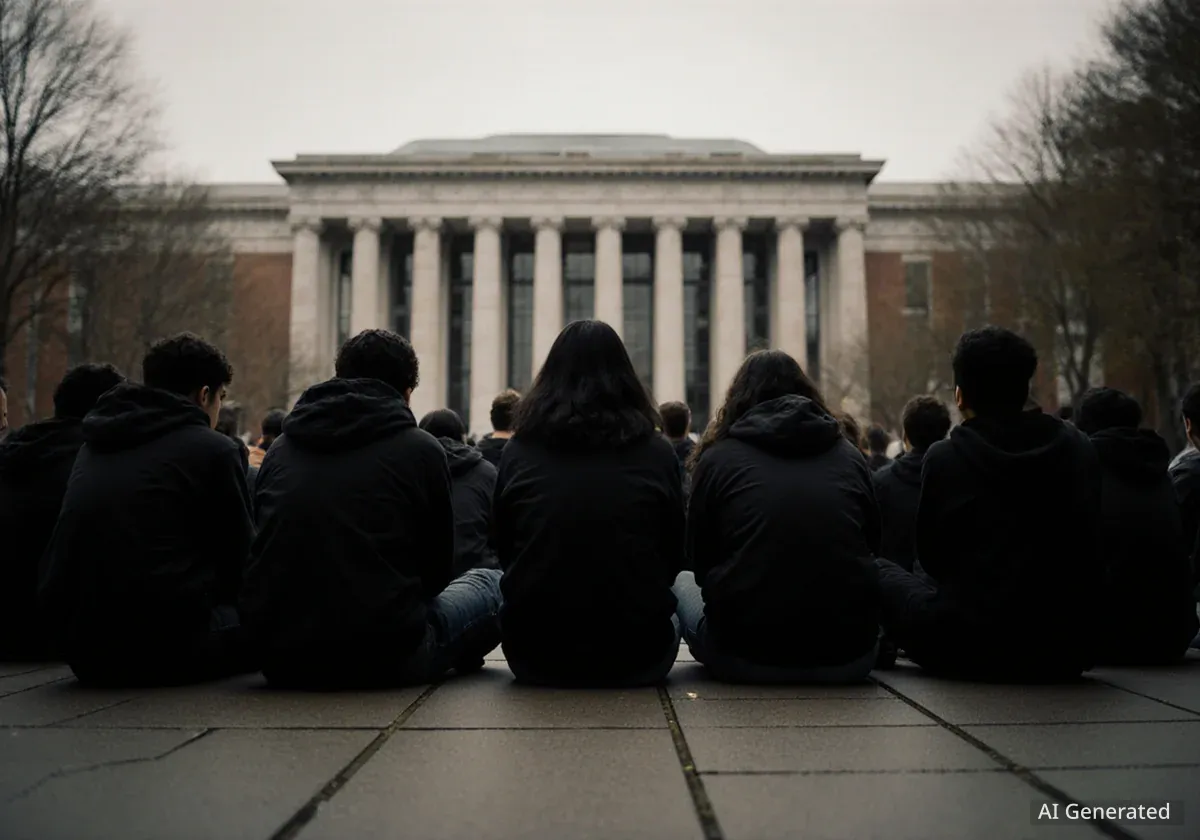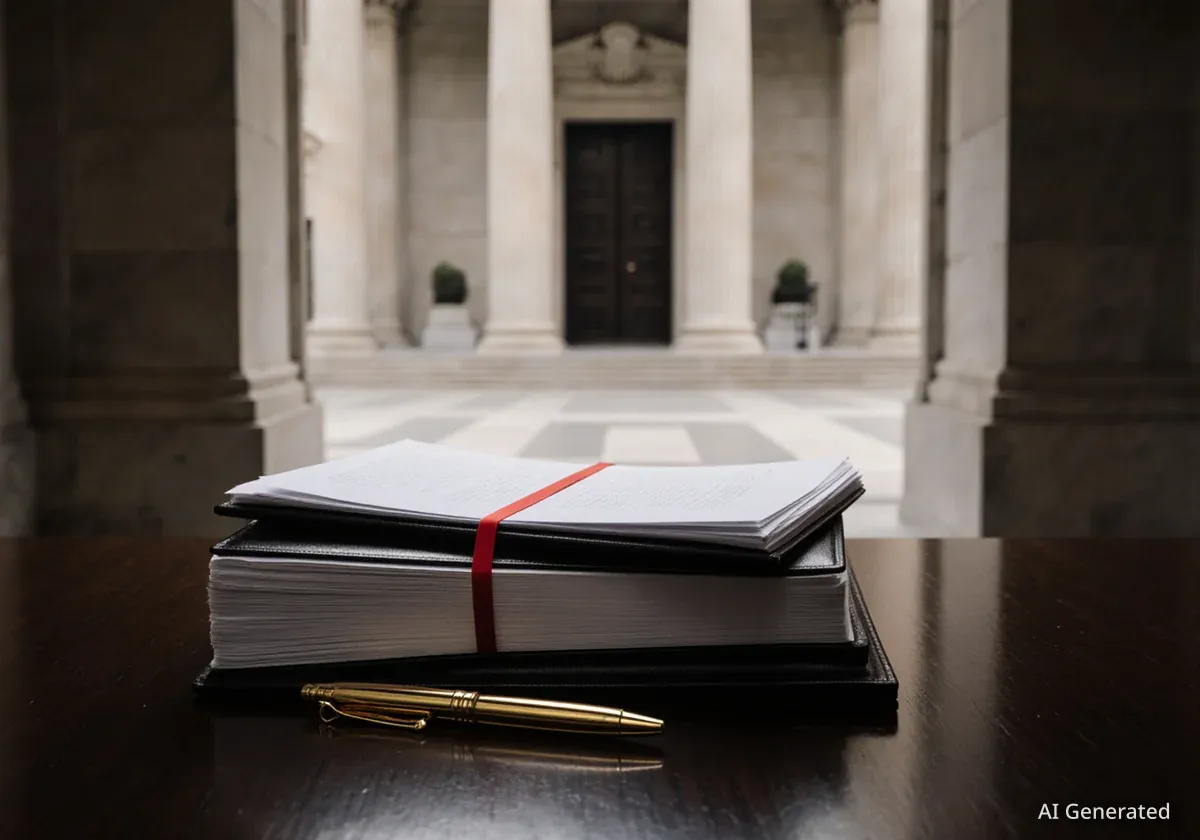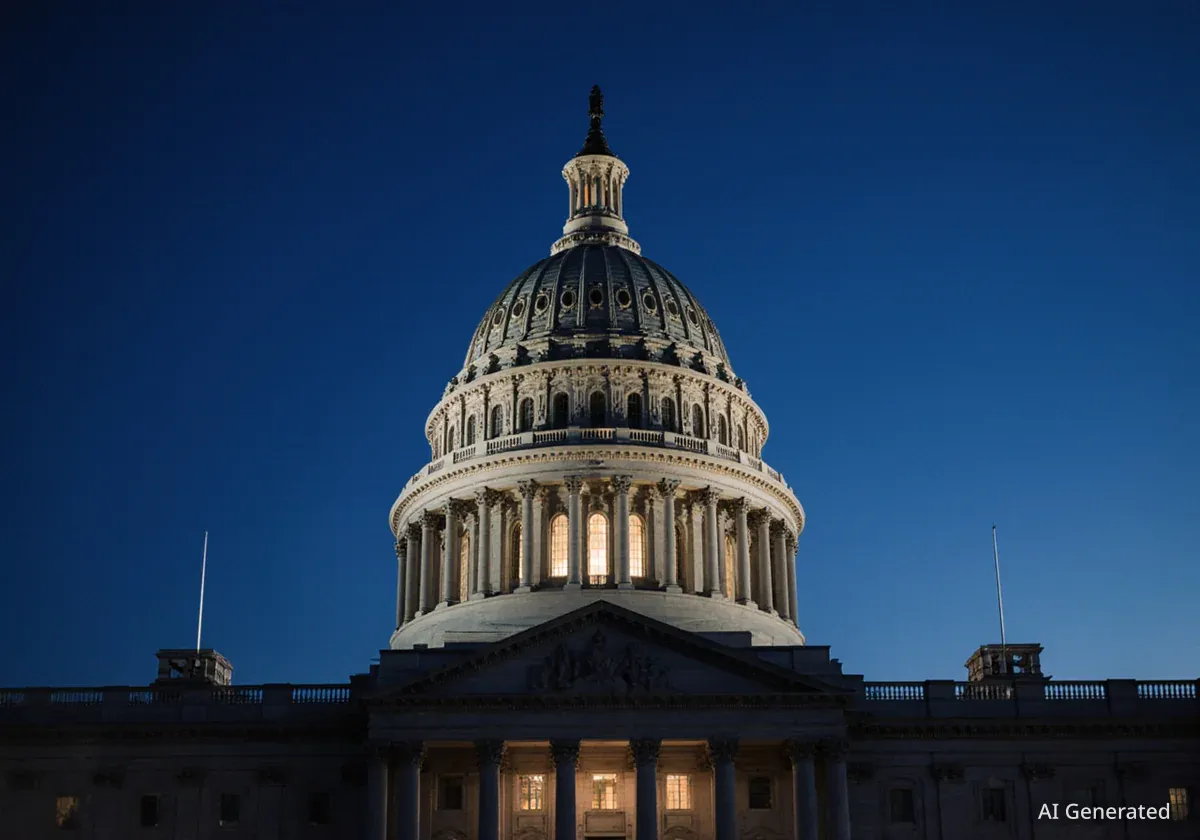A coalition representing University of California employees has filed a federal lawsuit against the Trump administration. The legal action aims to prevent the suspension of research grants and halt a proposed $1.2 billion fine targeting the University of California, Los Angeles (UCLA).
The plaintiffs, which include several labor unions and faculty groups, allege that the administration's actions are an unconstitutional attempt to suppress free speech and academic freedom within the state's public university system.
Key Takeaways
- A coalition of UC employee unions and faculty associations filed a lawsuit in the Northern District of California.
- The suit targets the Trump administration's alleged attempts to suspend research grants and impose a $1.2 billion fine on UCLA.
- Plaintiffs accuse the administration of using financial threats to unlawfully influence university policies and stifle free speech.
- The legal action seeks a court order to block these financial pressures, citing constitutional violations.
Federal Lawsuit Challenges Administration's Actions
On Tuesday, a group representing faculty and staff across the University of California system initiated legal proceedings in federal court. The lawsuit, filed in the Northern District of California, directly challenges what the plaintiffs describe as unlawful pressure from the Trump administration.
The core of the 123-page complaint is the administration's alleged use of financial leverage to influence the university. The coalition is seeking a court order to block any further attempts to suspend crucial research funding or to enforce a significant financial penalty against UCLA.
According to the filing, these measures are designed to "coerce" the UC system into complying with demands that the plaintiffs believe would undermine the institution's educational mission and violate legal and constitutional protections for its employees and students.
Background on the Dispute
The lawsuit claims the administration has established a pattern of targeting higher education institutions. Plaintiffs argue this "playbook" involves threatening colleges and universities based on disagreements with their curriculum, campus activities, and diversity, equity, and inclusion (DEI) programs. The legal action positions the threats against UCLA as part of this broader strategy.
Allegations of First Amendment Violations
Leaders of the coalition have framed the lawsuit as a necessary defense of academic freedom and free speech, principles they say are fundamental to the university's identity. They argue that the administration's tactics represent a direct assault on the First Amendment rights of students, faculty, and staff.
"We will not stand by as the Trump administration tries to destroy one of the largest public university higher education systems in the country and bludgeons academic freedom at the University of California, the heart of the revered free speech movement," said Todd Wolfson in a statement.
Wolfson is the president of the American Association of University Professors, one of the organizations involved in the lawsuit. His statement highlights the historical significance of the UC system in national conversations about free expression.
The lawsuit further contends that the administration's demands could fundamentally alter the university's mission, potentially causing widespread harm to UC employees and the academic community it serves. A spokesperson for the Department of Justice had not provided a comment on the matter at the time of publication.
Defending Constitutional Principles
The legal team representing the coalition emphasizes that the lawsuit is about upholding constitutional limits on executive power. They argue that the president cannot dictate what ideas are permissible on a university campus.
Skye Perryman, president and CEO of Democracy Forward, the legal organization representing the plaintiffs, stated the case's importance for democratic principles.
"In America, there is no king. Under our Constitution, the President cannot force people to think like he does, believe like he does, nor be exposed to only the ideas he agrees with," Perryman said.
She characterized the administration's actions as an attempt to intimidate educational institutions and a "callous dismissal of one of the most important pillars of our democracy."
Financial Stakes in the Lawsuit
The lawsuit seeks to protect significant financial resources for the University of California system. The key figures involved are:
- $1.2 billion: The potential fine sought against UCLA by the administration.
- Undisclosed Amount: The value of federal research grants that are allegedly under threat of suspension. These grants are critical for scientific and academic projects across various departments.
The Broader Implications for Higher Education
This legal challenge is being closely watched by academic institutions across the country. A ruling in favor of the plaintiffs could set a significant precedent, potentially limiting the federal government's ability to use funding as a tool to influence university curriculum and policies.
Conversely, a ruling that favors the administration could embolden further actions against universities perceived as being at odds with its political agenda. The outcome will likely have lasting effects on the relationship between the federal government and public higher education.
The plaintiffs maintain that their goal is to protect the integrity of the academic environment. They argue that allowing financial threats to dictate educational content would create a chilling effect on research, open debate, and the free exchange of ideas that are essential to a university's function.
The case is expected to proceed through the federal court system, with both sides preparing to argue the constitutional questions at the heart of the dispute.
